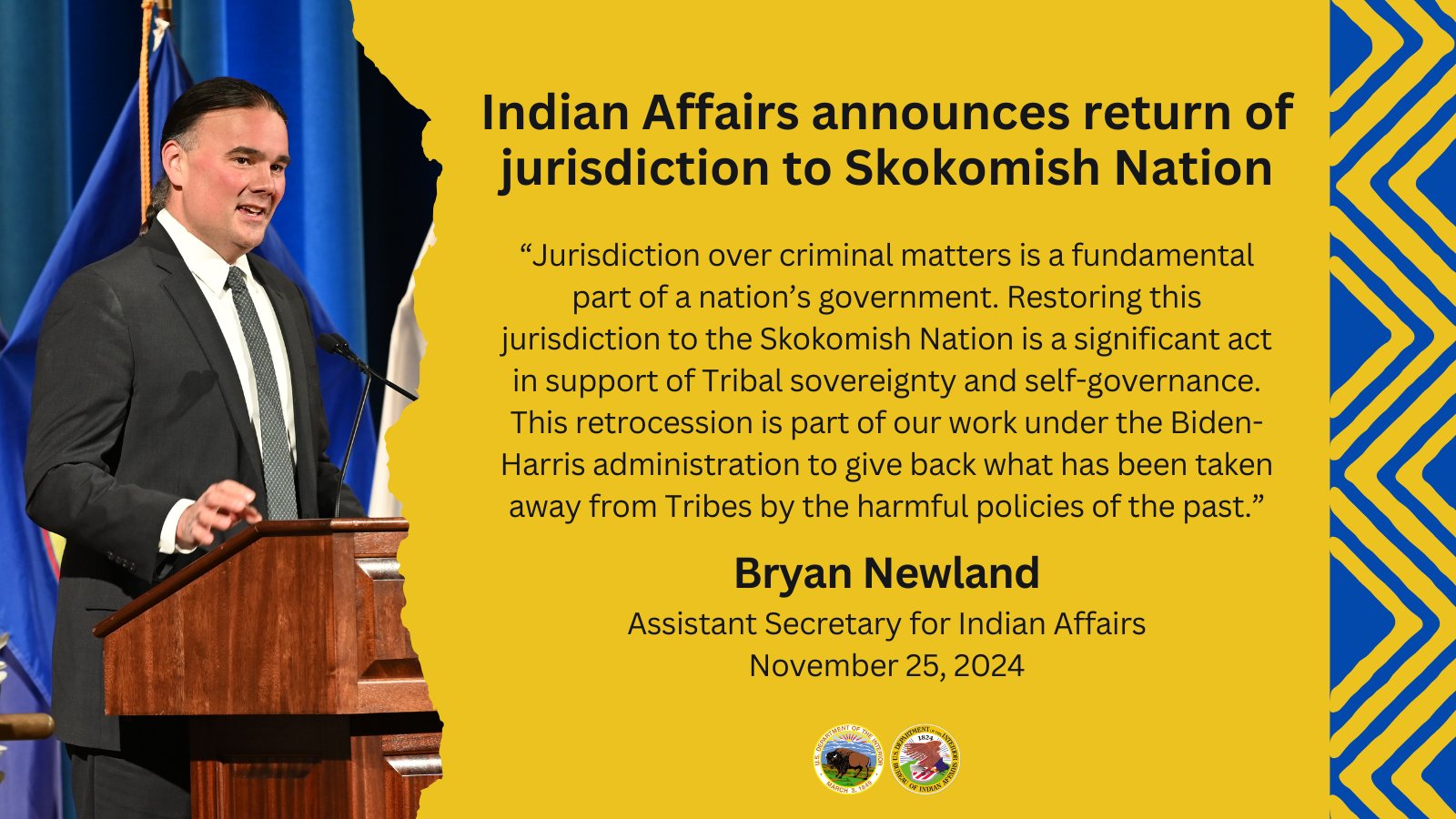WASHINGTON – The Office of the Assistant Secretary for Indian Affairs today announced that the Department of the Interior has accepted retrocession to the United States of partial criminal jurisdiction over the Skokomish Nation from the State of Washington. The Tribe worked with the State of Washington and the Department to reassume jurisdiction over certain crimes within its reservation boundaries.
“Jurisdiction over criminal matters is a fundamental part of a nation’s government. Restoring this jurisdiction to the Skokomish Nation is a significant act in support of Tribal sovereignty and self-governance,” said Assistant Secretary for Indian Affairs Bryan Newland. “This retrocession is part of our work under the Biden-Harris administration to give back what has been taken away from Tribes by the harmful policies of the past.”
Congress enacted Public Law 83-280 in 1953 as part of its overall Termination Policy, which was aimed at diminishing the sovereign existence of Indian Tribes. The law transferred criminal jurisdiction over Indian people on Indian lands from the federal government to certain states. Retrocession allows jurisdiction to be returned by the state, allowing a Tribe to assume jurisdiction through self-determination and self-governance.
U.S. Attorney for the Western District of Washington Tessa M. Gorman applauded the Skokomish Nation’s determination to secure retrocession and stated, “We look forward to working with our law enforcement partners, the FBI, and the Skokomish Tribal Police Department, to further our collective mission of keeping the Skokomish Tribal community safe, prosecuting criminal conduct, and protecting the rights of its Tribal citizens.”
The State of Washington retains partial criminal jurisdiction over the Skokomish Nation Reservation as provided in the Revised Code of Washington Section 37.12.010, including over offenses committed by non-Indians on Tribal land.
The Assistant Secretary for Indian Affairs advises the Secretary of the Interior on Indian Affairs policy issues; communicates policy to and oversees the programs of the Bureau of Indian Affairs, the Bureau of Indian Education, and the Bureau of Trust Funds Administration; provides leadership in consultations with Tribes; and serves as the DOI official for intra- and inter-departmental coordination and liaison within the Executive Branch on matters concerning American Indians and Alaska Natives and the federally recognized Tribes in the United States.








